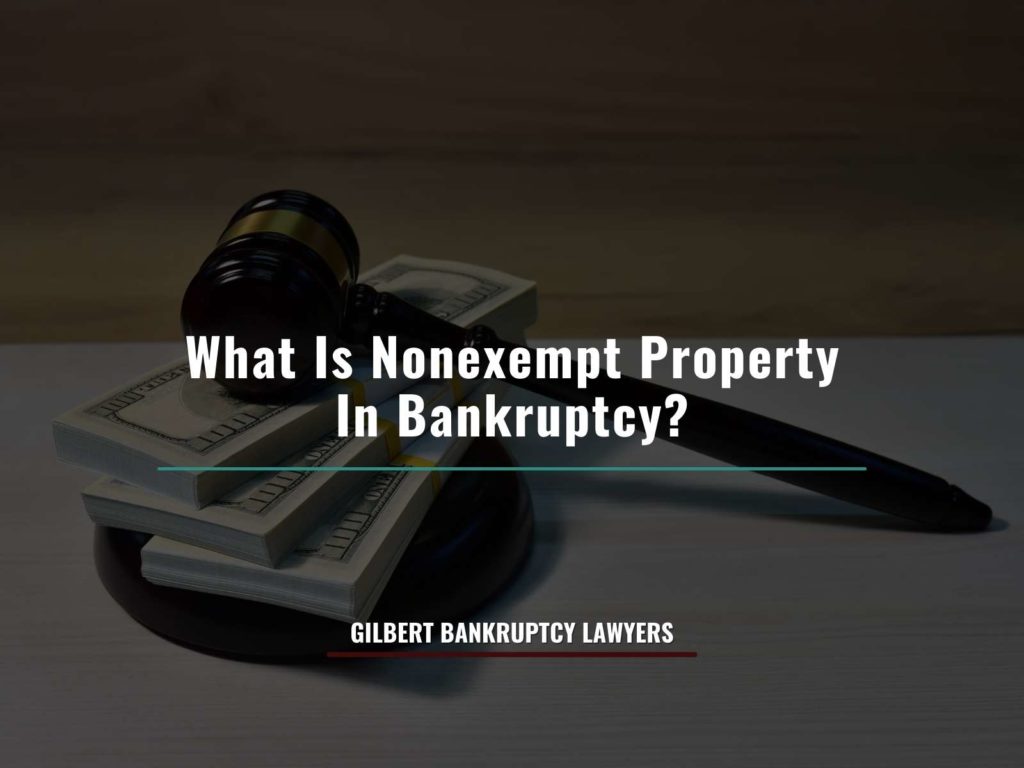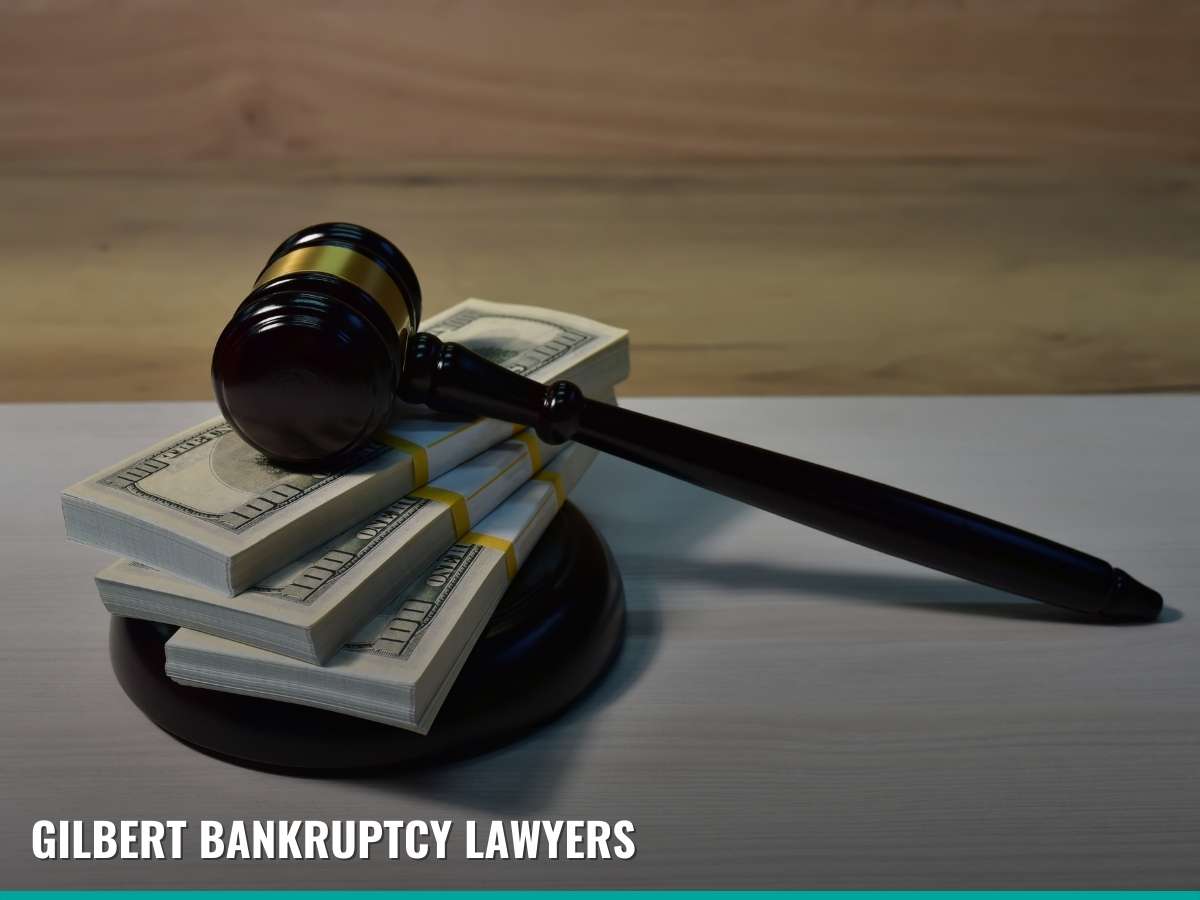How Nonexempt Properties Are Crucial For a Bankruptcy Case
Declaring bankruptcy is tough. Just the image of experiencing financial issues and thinking of selling our most precious items is enough to be afraid. But, bankruptcy can be necessary in some cases, so it is crucial to know its ins and outs.
Learning the differences between exempt and nonexempt property is crucial for any bankruptcy case. Exempt property is a property that creditors cannot sell because those items are essential for your daily living. As you may guess, the nonexempt property would be the contrary.
To know more details about the nonexempt property, a Gilbert bankruptcy lawyer shares below some facts.
What Is The Meaning Of “Nonexempt Property”?
During a bankruptcy case, people sell some of their items to help them end part of the debt. These products are known as ‘nonexempt property’. Nonexempt property is the group of items that do not receive protection in bankruptcy and do not appear on the debtor’s exemption list.
Contrary to nonexempt property, exempt property refers to essential items for your everyday living, including things you need for work. Your home, your car, and professional equipment belong to the exempt property.
Nonexempt property in bankruptcy terms refers to items more related to leisure. In other words, things you don’t need for essential living.
Vacation houses, travel souvenirs, family heirlooms, and luxury items are usually part of the nonexempt property.
Although the differences are very clear, it’s always best to be sure by contacting professional lawyers. Bankruptcy lawyers always have the expert opinion to guide you in your case. This way, you can be debt-free without risking many items.
What Is Nonexempt Property For Chapter 7 Bankruptcy?
The type of bankruptcy you file for will decide what happens to your possessions. It’s extremely important to always contact a trusted Gilbert bankruptcy lawyer before deciding on your exempt and nonexempt properties.
Chapter 7 is the most common type of bankruptcy because its requirements are quite attainable. To file for this type of bankruptcy, you only need to have an income that’s not higher than the state median income. You shouldn’t have any bankruptcy discharge in the last six to eight years either.
The only inconvenience of Chapter 7 is time. Processing chapter 7 bankruptcy can take a long time, from four months to six months with a fee of USD338. With Chapter 7 bankruptcy, you must also accept a trustee to handle the estate containing non-exempt property.
The trustee will be responsible for selling your possessions with the generated profit used to pay off creditors. Priority debts like child support are normally the first to be paid off. Loans and credit card bills are the next ones.
Nonexempt properties must meet certain conditions in Chapter 7. It may seem like a good idea to save some of them, but you cannot forget about the guidelines. As long as you keep the guidelines in mind, there shouldn’t be problems.
In some cases, saving nonexempt properties can be helpful, as long as you consult with a Gilbert bankruptcy attorney. For example, if the trustee abandons the estate, which usually happens when they see that there’s not much value in the items.
What Happens If The Trustee Abandons The Property?
When the trustee abandons nonexempt property during a Chapter 7 bankruptcy case, they file for a Notice of Abandonment. This document informs creditors that they should not liquidate the properties mentioned. With this agreement, the debtor has control of properties once again.
Once the trustee finishes the process of abandonment, the debtor’s properties are released from bankruptcy. In that case, the debtor can either surrender the property, sign a new contract, file for surrender or keep the nonexempt property.
What Is Nonexempt Property For Chapter 13 Bankruptcy?
If you have an income higher than the median estate, you should file for Chapter 13 bankruptcy. You have to meet specific requirements apart from having that income. One is that your unsecured and secured debt does not increase its assigned limit.
You must also prove that you are capable of paying the repayment plan. This type of bankruptcy is not available for businesses.
With Chapter 13, the filer has to pay the nonexempt property to the unsecured creditors through the retirement plan. Chapter 13 Bankruptcy in Gilbert is usually trickier than Chapter 7, so you may need constant assistance throughout the process.
If you file for Chapter 13 bankruptcy, you will be obligated to pay your creditors through a retirement plan, meaning that you could end up paying them more if you want to keep your nonexempt properties.
Should I Contact a Gilbert Bankruptcy Lawyer?
Regardless of the type of bankruptcy you file for, it’s not recommended to do the entire process by yourself. You should always contact a bankruptcy lawyer.
That’s why we recommend you to reach out to Gilbert Bankruptcy Lawyer. Our team of experienced lawyers will give you professional guidance so you can obtain the best solution for your debts.
Gilbert Bankruptcy Lawyers
Office: 480-448-9800
Email: info@myazlawyers.com
Website: https://gilbertbankruptcylawyers.com

